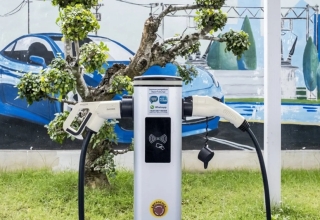
The choice of Singapore to apply flexible work schedules (FWA) represents a major change in its work culture to fit worldwide trends stressing work-life balance. This change coincides with countries all around realizing the value of flexible work schedules in creating a happier, better, and more efficient labor force.
Inspired by the achievements of Scandinavian nations, Singapore’s Tripartite Guidelines on Flexible Work Arrangement Requests, effective from December 1, 2024, seek to inspire companies to embrace forward-looking practices. These include job-sharing, staggered hours, and remote work, thereby giving staff members a regulated and ordered means of requesting flexible work schedules. By doing this, Singapore is trying to strike a more dynamic and resilient workforce by juggling the operational needs of companies with the personal well-being of employees.
These rules are especially crucial since they go beyond casual plans to a legally backed structure guaranteeing justice. Companies will be obliged to treat FWA requests honestly and provide justification for either acceptance or rejection. This change reflects a more progressive attitude to workforce management that considers the changing expectations of workers in a post-pandemic environment where flexibility is progressively perceived as a need rather than a benefit.
Scandinavia: Leaders in Work-Life Balance Globally
The long-standing success of Scandinavian nations, where work-life balance is firmly established in the society, greatly influences Singapore’s shift toward flexible work schedules. Pioneers in providing flexible work options, Finland, Denmark, and Sweden have shown great results in terms of world happiness and productivity indices, therefore proving the success of their policies.
For many years running, including 2024, Finland has ranked highest in the World Happiness Report. The nation’s dedication to flexible work policies is a major component in its success. Nowadays, about half of all Finnish jobs provide hybrid or totally remote working choices so that workers may fit their job schedules to their home life. This strategy has not only helped Finland to be known as the happiest nation in the world but also improved its economic output, therefore demonstrating that flexibility does not have to give up efficiency.
Likewise, for decades Denmark and Sweden have supported flexible work schedules to create settings where workers may more peacefully balance their home and professional life. With rules supporting remote work and flexible hours becoming the standard, major cities including Copenhagen and Helsinki are regularly listed among the greatest places in the world for work-life balance. These nations have shown that adaptability in the workplace benefits not just personal welfare but also society cohesiveness and economic resilience.
Increasing Singaporeans’ Productivity and Well-Being
With these measures, Singapore hopes to produce a workforce that is more flexible and future-ready. By lowering burnout and absenteeism—two factors that have been demonstrated to dramatically drop when workers have more control over their schedules—flexible work schedules are projected to improve production. Studies repeatedly show that workers who value a better work-life balance are more involved, driven, and effective on the job.
Furthermore, Singapore’s use of flexible working schedules fits its more general objective of encouraging a more family-friendly society. FWA lets people reconcile work obligations with personal commitments like childcare or elder care as the pressures of modern life progressively draw people in diverse directions. Workers will feel more supported in their duties, hence this measure is predicted to result in increased employee satisfaction and retention.
The advantages go beyond those of individual workers. Flexible work schedules can help companies save money by lowering absenteeism, cutting office space needs, and improving employee retention rates. Companies that provide flexible work schedules are also likely to be more competitive in drawing top personnel, particularly since the worldwide workforce gives work-life balance top priority when selecting companies. FWA thereby facilitates the development of a win-win scenario for companies and staff.
Flexible Work’s Environmental and Financial Advantage
Additionally seen as a possible answer to some of the environmental issues urban centers like Singapore face is flexible work schedules. Natural results of remote and hybrid work models—reduced commuting—can significantly lower carbon emissions and traffic congestion. This fits Singapore’s continuous attempts to be a more sustainable city-state by means of regulations meant to lower its environmental impact.
Encouragement of flexible hours and remote work will help Singapore to lower energy consumption in commercial office buildings and ease strain on its public transportation networks. This helps not only with environmental sustainability but also with financial savings since companies can need less actual office space and running expenses.
Moreover, the acceptance of flexible schedules helps Singapore to realize its goal of being a smart country. Leveraging technology to enable remote work helps the nation to build a more creative and technologically linked economy. This change would probably draw worldwide talent, therefore reinforcing Singapore’s leadership as a center for business and technology.
An Approach for Competitiveness and Retention of Talent
Providing flexible work schedules has become a major determinant of talent attraction and retention in the competitive worldwide labor market. Especially younger generations of workers nowadays see flexibility as an expectation rather than a luxury. Businesses that neglect to offer flexible work schedules run the danger of missing out on qualified staff to rivals that do.
Formalizing FWA through the Tripartite Guidelines helps Singapore to make sure that its companies stay appealing to local and foreign talent. In sectors such as technology, finance, and services—where talent shortages are sometimes a problem—the shift toward flexible employment is projected to boost Singapore’s competitiveness. Flexible work arrangements let businesses leverage a larger pool of talent, including those who might have been turned off from the workforce because of strict working hours—parents or caretakers, for example.
In Singapore, where workers have been expressing more and more the need for more flexible work conditions, this approach also helps meet the rising need for work-life balance. Offering organized FWA choices would help Singaporean companies lower turnover—often expensive and disruptive—and increase employee retention.
Singapore’s Future Workplace Vision
Reflecting its dedication to building a contemporary, resilient, and sustainable workplace, Singapore’s choice to apply the Tripartite Guidelines on Flexible Work Arrangement Requests is forward-looking. Adoption of flexible work schedules is a strategic endeavor aiming at future-proofing the workforce and economy of the country, not only about raising employee satisfaction.
These new rules will be very important to make sure Singapore stays a desirable place for companies and people both as the nation keeps ranking as a global leader in innovation and competitiveness. From more productivity and employee well-being to environmental sustainability and talent retention, FWA clearly offers advantages. Following in the footsteps of Scandinavia, Singapore is acting pro-actively to create a more flexible, family-friendly, and productive workforce, thereby guaranteeing that it stays at the forefront of trends in work cultures worldwide.
Singapore’s adoption of flexible work schedules sets the way for a more fair and inclusive future as the workplace changes. This strategy not only improves the welfare of its employees but also increases the nation’s worldwide competitiveness, so guiding Singapore as a model for other countries trying to establish a vibrant and sustainable workforce.





















